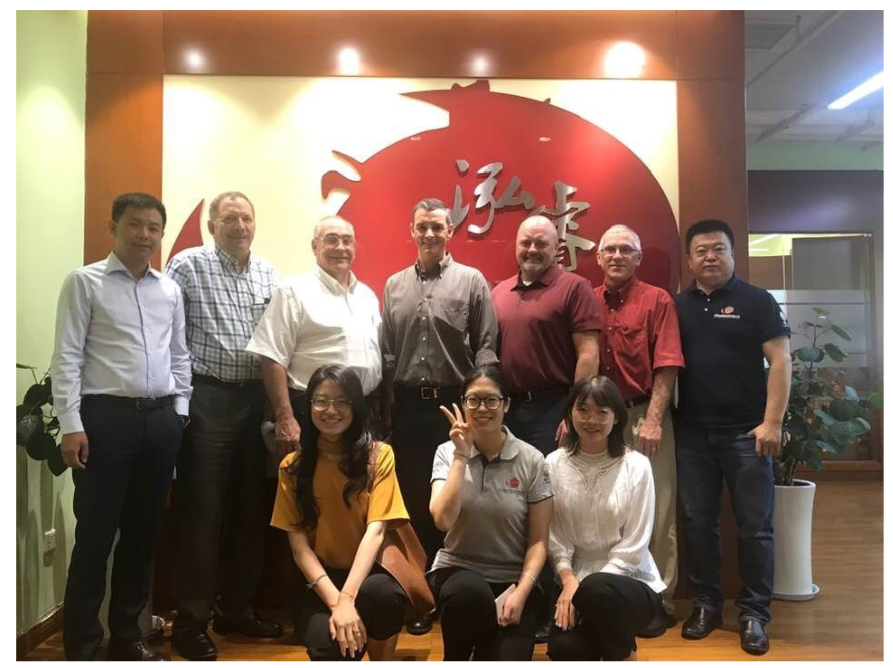Through Decision Innovation Solutions, I provide consulting services on international programs and activities to the Iowa Farm Bureau Federation. One of my recent activities involved a trade mission to China and Taiwan.
In late August, I and a group of 4 representatives of Iowa Farm Bureau traveled to Beijing, China. While in Beijing, we met with Ambassador Branstad and several senior staff at the US Embassy in Beijing. In our briefing with the Ambassador we were able to update him on the agricultural situation in the US and more specifically, in Iowa. The Ambassador briefed us on the status of US-China trade negotiations and US-China relationships. In addition, the USDA Foreign Ag Service staff provided us with updates on African Swine Fever, agricultural trade, meat consumption trends in China and a host of other pertinent factors that are relevant to the US-China trade relationship.

In Beijing, our group met with importers of meats, both beef and pork, and were able to discuss with them the pork and beef supply situation in the U.S. and outlook for pricing in the coming year. We also talked about the current tariff situation and the impact that tariffs are having on imports of beef and pork into China.
Domestic pork prices in China have skyrocketed recently as the impacts of wide-spread African Swine Fever (AFS) are curtailing pork production. Official Chinese data indicates that pork production in China has declined about 31% from a year ago, and that the swine breeding herd is down about 45%. Private estimates put the breeding herd decline at more than 50%. New cases of AFS are still occurring and it is likely that further declines in Chinese pork production will be experienced for at least another 12 months. Efforts are underway to re-populate swine production facilities, but the continued spread of AFS is hindering the efforts to re-populate.
A lot of U.S. pork and beef that is brought into China is consumed in high-end restaurants or sold in high-end meat markets. One restaurant we dined at was “Rodeo” restaurant. The meal was superb, featuring strip steak and barbequed pork ribs. The chef was proud to serve U.S. beef and said the quality was superior to product he could obtain locally or other countries. He really liked the marbling and the taste of U.S.-grain fed beef.
We also visited with Beijing Hopewise, one of the largest importers of U.S. beef into China. They service retailers and restaurants and do some processing, cutting and re-packaging of meats for the Chinese market. They provided us with data about the Chinese meat supply and demand situation and we talked to them about U.S. supply and demand conditions. They were most appreciative of the exchange.

After our visits in Beijing, we traveled to Taipei, Taiwan. In Taiwan, we met with USDA-FAS staff at the American Institute in Taiwan (AIT) and visited with a number of retailers and restaurants that use U.S. beef and U.S. pork. U.S. meat products can be found in stores such as Carrefour and Costco, but also in many traditional markets and meat specialty shops. In general, U.S. meats, especially beef, are considered premium products in Taiwan and generally sell for top market prices. Retailers and restaurants are proud to feature U.S. meat products.
It was a privilege to be able to facilitate the China & Taiwan trade mission of the Iowa Farm Bureau and to work with their partners, U.S. Meat Export Federation, U.S. Grains Council, and U.S. Soybean Export Council along with the USDA staff in Beijing and Taipei who serve U.S. agriculture. DIS helps its clients in many ways and facilitating trade missions is just one of the services we provide.

